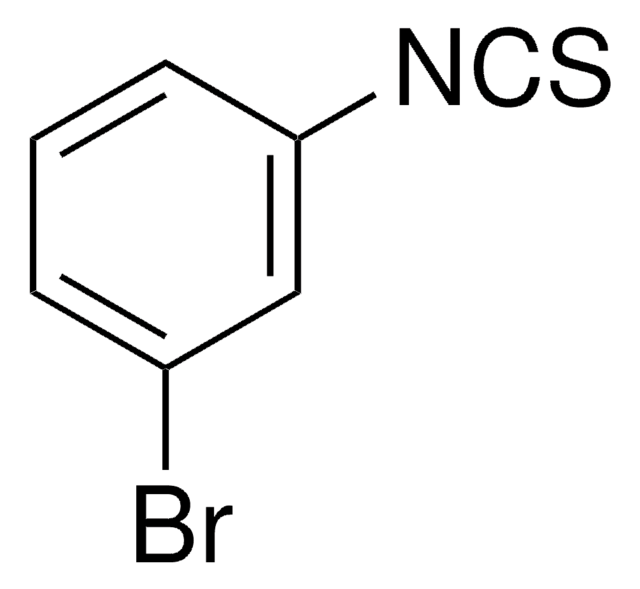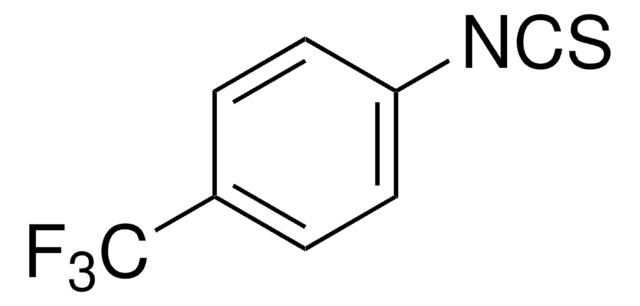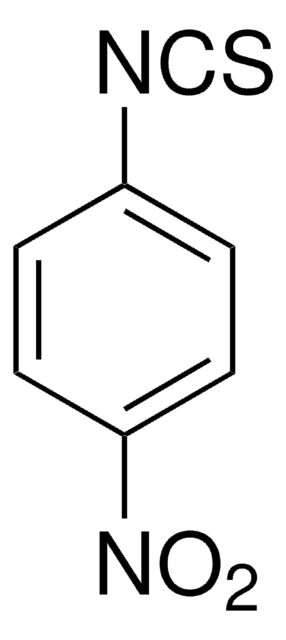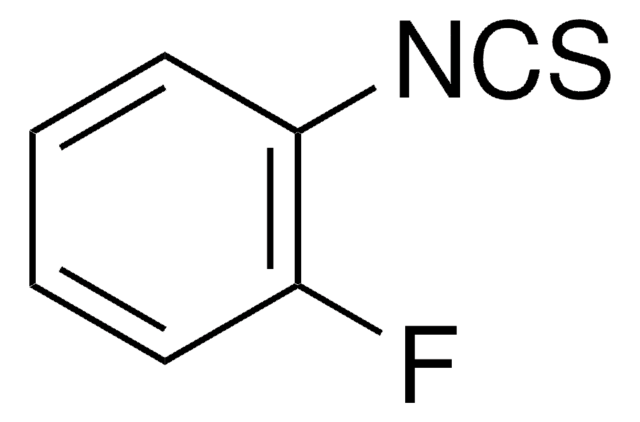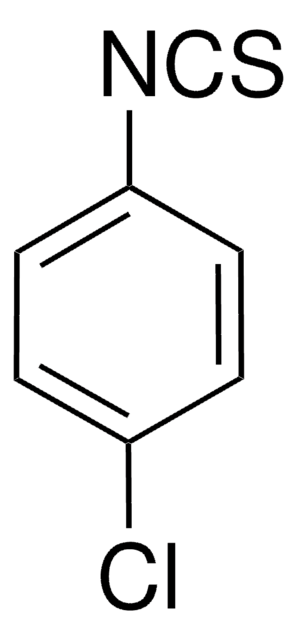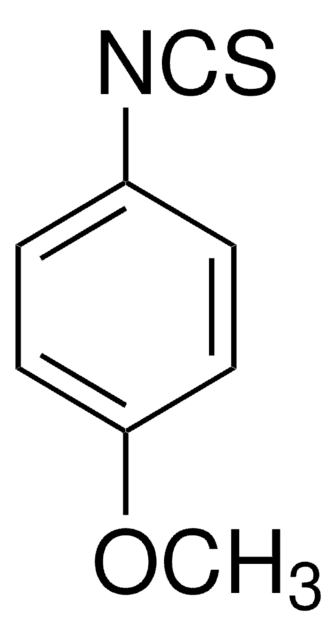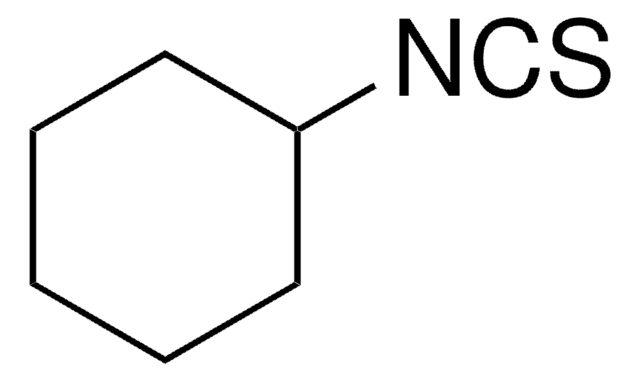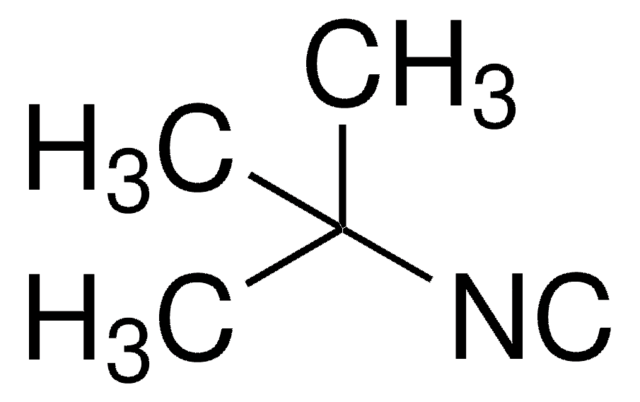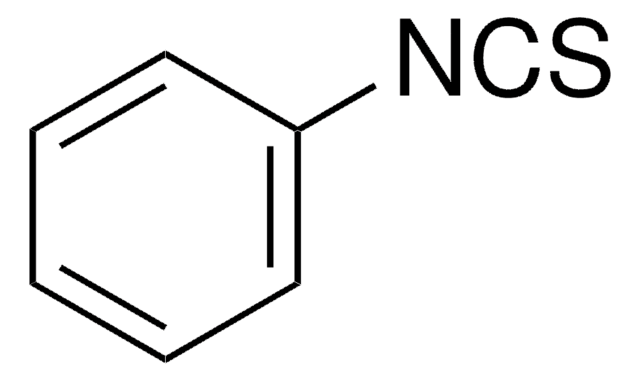All Photos(1)
About This Item
Linear Formula:
BrC6H4NCS
CAS Number:
Molecular Weight:
214.08
MDL number:
UNSPSC Code:
12352100
PubChem Substance ID:
NACRES:
NA.22
Recommended Products
Quality Level
Assay
98%
form
liquid
refractive index
n20/D 1.6843 (lit.)
bp
257 °C/770 mmHg (lit.)
density
1.591 g/mL at 25 °C (lit.)
functional group
bromo
isothiocyanate
SMILES string
Brc1ccccc1N=C=S
InChI
1S/C7H4BrNS/c8-6-3-1-2-4-7(6)9-5-10/h1-4H
InChI key
PAFORXDSYWMYGP-UHFFFAOYSA-N
Related Categories
Application
2-Bromophenyl isothiocyanate has been used in the synthesis of 4-monosubstituted and 4,4-disubstituted 1,4-dihydro-3,1-benzoxazine-2-thiones.
Signal Word
Danger
Hazard Statements
Precautionary Statements
Hazard Classifications
Acute Tox. 4 Dermal - Acute Tox. 4 Inhalation - Acute Tox. 4 Oral - Eye Irrit. 2 - Resp. Sens. 1 - Skin Irrit. 2 - STOT SE 3
Target Organs
Respiratory system
Storage Class Code
10 - Combustible liquids
WGK
WGK 3
Flash Point(F)
235.4 °F - closed cup
Flash Point(C)
113 °C - closed cup
Personal Protective Equipment
dust mask type N95 (US), Eyeshields, Gloves
Choose from one of the most recent versions:
Already Own This Product?
Find documentation for the products that you have recently purchased in the Document Library.
One-pot synthesis of 1, 4-dihydro-3, 1-benzoxazine-2-thiones by the reaction of 2-lithiophenyl isothiocyanates with aldehydes or ketones.
Kobayashi K, et al.
Tetrahedron, 66(48), 9336-9339 (2010)
Fazila Rizvi et al.
Scientific reports, 9(1), 6738-6738 (2019-05-03)
A library of thiosemicarbazide derivatives of isoniazid 3-27, was synthesized and evaluated for their anti-inflammatory and urease inhibition activities, by using in vitro bioassays. Among these compounds 9, 10, 12, 21, and 26 were identified as new derivatives. Prolonged use
Our team of scientists has experience in all areas of research including Life Science, Material Science, Chemical Synthesis, Chromatography, Analytical and many others.
Contact Technical Service
